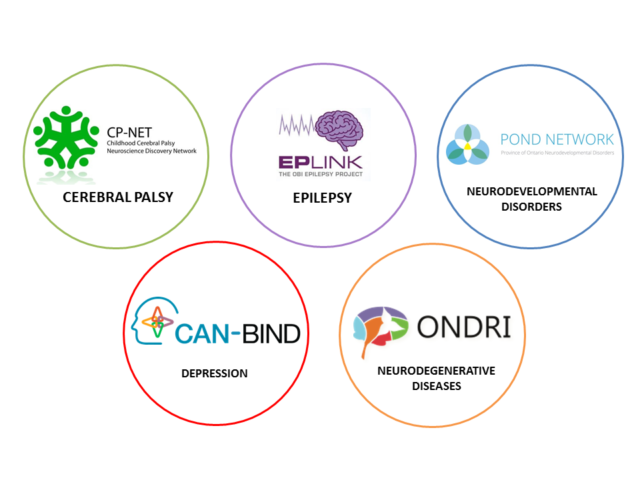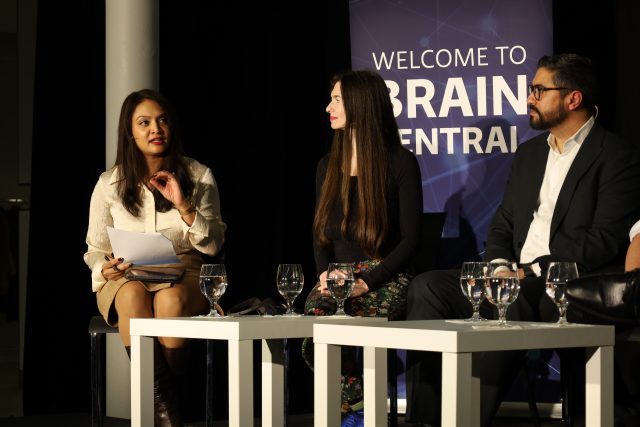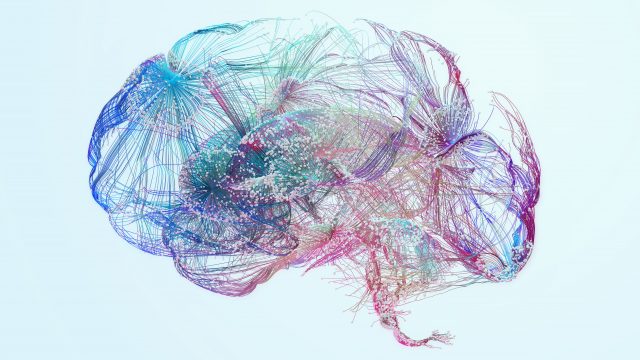As a research institute dedicated to maximize Ontario’s neuroscience excellence, OBI has reached out across Ontario to connect scientists, clinicians, industry representatives and patient advocacy groups, who are focused on similar challenges. To better achieve their shared goals, five Integrated Discovery programs were established for cerebral palsy, depression, epilepsy, neurodegenerative disorders, and neurodevelopmental disorders. “Integrated Discovery” programs are research programs that bring together scientists, clinicians, industry representatives, and patient advocacy groups from across Ontario to foster integration across disciplines and pursue new questions.
These programs have started generating some exciting news—here is their latest:
The Canadian Biomarker Integration Network for Depression (CAN-BIND) is dedicated to shortening the path from diagnosis to ‘the right’ treatment for people living with depression. With over 100 participants currently enrolled, the program does this by testing for ‘biomarkers’—biological characteristics that will help guide treatment selection based on individual responses.
Studies in the CAN-BIND program are beginning to include examinations of device-based treatments including repetitive transcranial magnetic stimulation (rTMS). This treatment uses a magnetic field to induce weak electric currents that alter the neuronal connections in the brain. The technology is not new but it is being used in new ways by the CAN-BIND team—they have figured out more precise brain regions to target and have also adjusted stimulation techniques to mimic rhythms that the brain naturally uses to alter its own activity patterns. This strategy has shown a higher rate of positive results among patients than those shown in previous uses of rTMS. For more information on rTMS you can watch a public talk given by Dr. Jonathan Downar, Co-Director of the University Health Network’s rTMS Clinic and member of the CAN-BIND team.
The Childhood Cerebral Palsy Integrated Neuroscience Discovery Network (CP-NET)’s mission is to transform care for children with cerebral palsy and their families by accelerating the development of new treatments. This research program comprises a variety of projects including applications of technologies like video games that reward children for using their hemiplegic hand while playing, facilitating fine motor rehabilitation.
In celebration of World Cerebral Palsy Day, CP-NET hosted “Creating Possibilities for CP: CP-NET Science & Family Day” on October 1, 2014 at the Holland Bloorview Kids Rehabilitation Hospital. The day consisted of the latest CP-NET research, technology advancements, and an open house of community organizations which allowed families to connect, network, and learn more about available resources.
OBI would like to congratulate:
CP-NET Scientific Director Dr. Darcy Fehlings on becoming the President of the American Academy of Cerebral Palsy & Developmental Medicine (AACPDM) Board of Directors.
CP-NET Executive Committee Member and researcher, Dr. Peter Rosenbaum, on receiving the Lifetime Achievement Award from the AACPDM for his creative contributions of outstanding significance to the field of medicine and for the benefit of patients with cerebral palsy and other childhood-onset disabilities.
The Province of Ontario Neurodevelopmental Disorders (POND) Network has been designed to improve the diagnosis and treatment of neurodevelopmental disorders including autism spectrum disorder (ASD), attention deficit hyperactivity disorder (ADHD), obsessive compulsive disorder (OCD) and intellectual disability (ID). They will soon also include fragile X syndrome, Tourette Syndrome, Rett syndrome and Down syndrome.
In a recent study led by several POND researchers, animal models were used to examine associated biological characteristics in ASD. The findings suggested that in mouse models, abnormalities in certain regions of the brain are linked to autism. This important work may play a role in predicting how patients will respond to particular treatments. The paper was published in Molecular Psychiatry:Clustering autism: using neuroanatomical differences in 26 mouse models to gain insight into the heterogeneity.
OBI would like to congratulate: renowned Canadian geneticist Dr. Stephen Scherer, for being included on Thomson Reuters’ list of “Nobel-class” Citation Laureates and for being named Director of the Autism Speaks Ten Thousand Genomes Program (AUT10K). This program is a collaborative initiative aimed at developing the world’s largest database of complete genomic information on individuals with ASD and their family members. It is funded by Autism Speaks—one of the world’s leading autism science and advocacy organizations.
The Epilepsy Discovery Project (EpLink) aims to achieve seizure control for individuals with drug-resistant seizures. Researchers in EpLink are working in a variety of research streams focused on improving diagnosis of epilepsy, developing novel drugs and diets, improving surgery techniques, controlling seizures through brain stimulation, and improving the quality of life of people living with epilepsy.
Depression occurs in up to 50% of adults with uncontrolled epilepsy. EpUp is one of EpLink’s newer projects which uses cognitive behavioral therapy via internet or telephone to improve symptoms of depression among adults with uncontrolled epilepsy. Two types of programs that have never before been used in Canada will be compared throughout the study. You can read more about the programhere.
Findings from Dr. Michael Poulter’s lab at Western University have shown a Himalayan flower root’s potential to stop seizures; what makes this an exceptional discovery is that its efficacy is seen at an earlier stage and at a smaller dose than other anticonvulsant medications, which could mean fewer side effects. This potential is crucial as 30% of people with epilepsy do not respond to any current medications, and this may help close that gap. Read more about this unexpected, intriguing possible treatment in the Toronto Star.
The Ontario Neurodegenerative Disease Research Initiative (ONDRI) aims to improve the diagnosis and treatment of neurodegenerative disorders including: Alzheimer’s, Parkinson’s, amyotrophic lateral sclerosis, frontotemporal lobar degeneration, and vascular cognitive impairment. Instead of studying what is unique about each of these diseases, the long-term observational study emphasizes seeking out the common early indicators of such diseases. As part of this research initiative, participants complete genomic testing, gait and balance evaluations, ocular testing, a neuropsychological evaluation, and neuroimaging. The objective is to eventually discover potential risk factors. Patient recruitment for these studies is currently underway.
On August 11, Jim and Louise Temerty, on behalf of the Temerty Family Foundation, announced a$5-million gift to Western University. This gift is being shared with ONDRI to match funds put out by OBI. OBI would like to extend its sincere thanks to the Temerty’s for their philanthropic gift to help support neurodegenerative research across Ontario.
OBI would like to congratulate Rick Swartz on being awarded the New Investigator Award by The Personnel Award program of the Heart and Stroke Foundation of Canada.
ONDRI is soon to launch its website—watch a video about the program here.
Back to Brainnovations Newsletter

